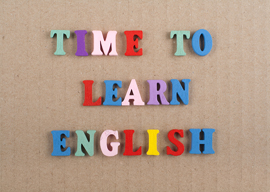
May 24, 2018

Source: Bigstock
JUPITER, Fla.—I feel like I need to confess my addiction, like a newbie in a 12-step program.
My name is Joe Bob, and I’m an English major.
I’m not asking for your pity. I’ve been trying to overcome this addiction on my own for several decades now, and so I’m turning it over to a higher power.
That higher power would be the Modern Language Association, which owns something called the Postsecondary Education Data System, and they are reporting that English is now pretty much the most unpopular major in college, so unpopular that liberal arts colleges are closing their doors or, in desperate efforts to stay open, changing to a “career-oriented” curriculum. From what I understand, “career-oriented” rules out English.
But it gets worse. There are several different kinds of English degrees, depending on what course concentrations you have, and it turns out that mine is the lowest of the low: English literature.
Chaucer wept.
Of course, when I heard the news that the number of declared English majors declines every year at a faster and faster rate, I started to come up with all the arguments for an English literature degree that would have been made by my high school guidance counselor.
(1) It makes you a better writer.
(2) It makes you a better speaker.
(3) It gives you a background that will be valuable in any other field.
(4) It makes you more appreciative of our cultural heritage and therefore better able to socialize.
(5) It builds your vocabulary.
(6) It gives you insights into history.
The problem with all of these reasons for majoring in English literature is (a) they’re lame, (b) I don’t really believe any of them, and (c) nobody majors in English literature for any of those reasons.
This is like talking to someone who likes coffee-flavored ice cream. If you ask them why they eat coffee-flavored ice cream, they could say, “I want more dairy in my diet,” “It improves my sleep,” “It has a probiotic effect on my digestion,” but the real reason is “I just like the taste. It doesn’t really do anything healthy for me.”
And eventually, if you study the data, which is what the Modern Language Association does, you have to reach the conclusion that studying English is good for…nothing.
Don’t get me wrong. I love my English degree. If I were a freshman today at my alma mater, Vanderbilt, I would sign up for every English course that has fewer than fifteen enrollees. Why? Because that means the class is taught by a fanatic who grades hard and requires lots of reading and lots of writing—an English scholar so feared that entering his classroom feels like being pushed into the labyrinth of the minotaur—and so it’s likely to be as glorious an experience as, say, Dr. Harold Weatherby’s survey of Victorian literature, which included Cardinal Newman, the Brownings, Tennyson, Swinburne, Gerard Manley Hopkins, and a great book I never would have found on my own, Thomas Carlyle’s Sartor Resartus. Should we read all the books spawned by the Oxford Movement of the 1830s?
Yes! Yes!
This is my Inner Nerd shouting hosannas, although Dr. Weatherby himself was a rather stern man who would have countenanced no outbursts in class.
A thousand times yes!
So this is actually a good example. Did reading, studying, and writing about Robert Browning, Alfred Lord Tennyson, Dante Gabriel Rossetti, or Gerard Manley Hopkins result in anything “useful,” as my father would have said?
I’m racking my brain. I’m trying to come up with justifications. I’m trying to figure out some way this translates into “Yes, you are now prepared for life.” But alas, these modern students who thumb their noses at English are correct. It’s good for nothing. It has no practical value whatsoever.
I could cite many other examples of wasting my four years:
Learning to read and pronounce The Canterbury Tales in the original Middle English.
The famous class in which a professor climbed up onto his desk to portray Grendel the monster relaxing in his lair at the moment he is disturbed by the sound of feasting upstairs and gets so mad he has to go devour several of Hrothgar’s warriors. (These athletic monster portrayals continued into the professor’s elder years.)
Listening over and over to the Caedmon audio versions of Shakespeare’s plays—one a week, every Sunday night—because you needed to hear the play spoken at least three times before you could pass the ten-question Monday-morning quiz.
Deep-diving into The Prelude, Don Juan, Keats, Shelley, and Coleridge in a tiny class that met around a conference table, with moments so satisfying that we (briefly) all wanted to live in the year 1810.
I could go on, but you get the idea. We were not just nerds, we were practically suicidal when it came to anything remotely resembling a marketable skill or even a marketable body of knowledge. We knew Ezra Pound’s Cantos and Robert Herrick’s lesser verse, but if you had asked where the Engineering School was, we wouldn’t even know the general direction. We did know where the computer lab was, but only because it was a modern circular atrocity with huge glass windows that seemed out of place among the venerable red brick. We never entered its doors. Never. Not once.